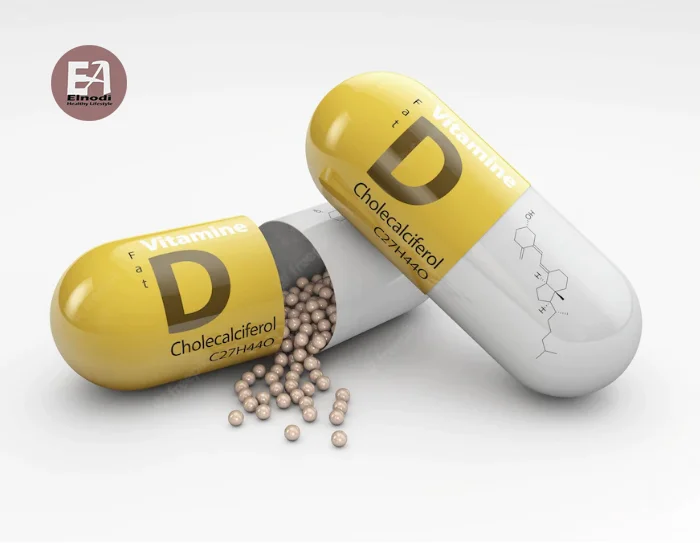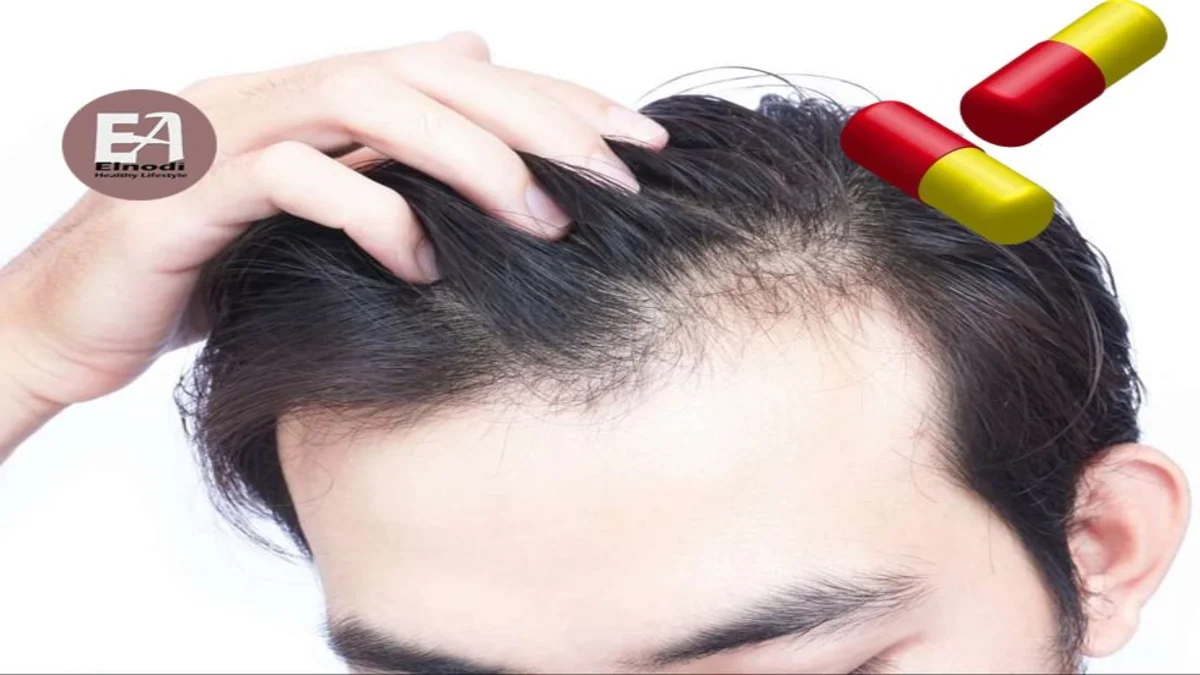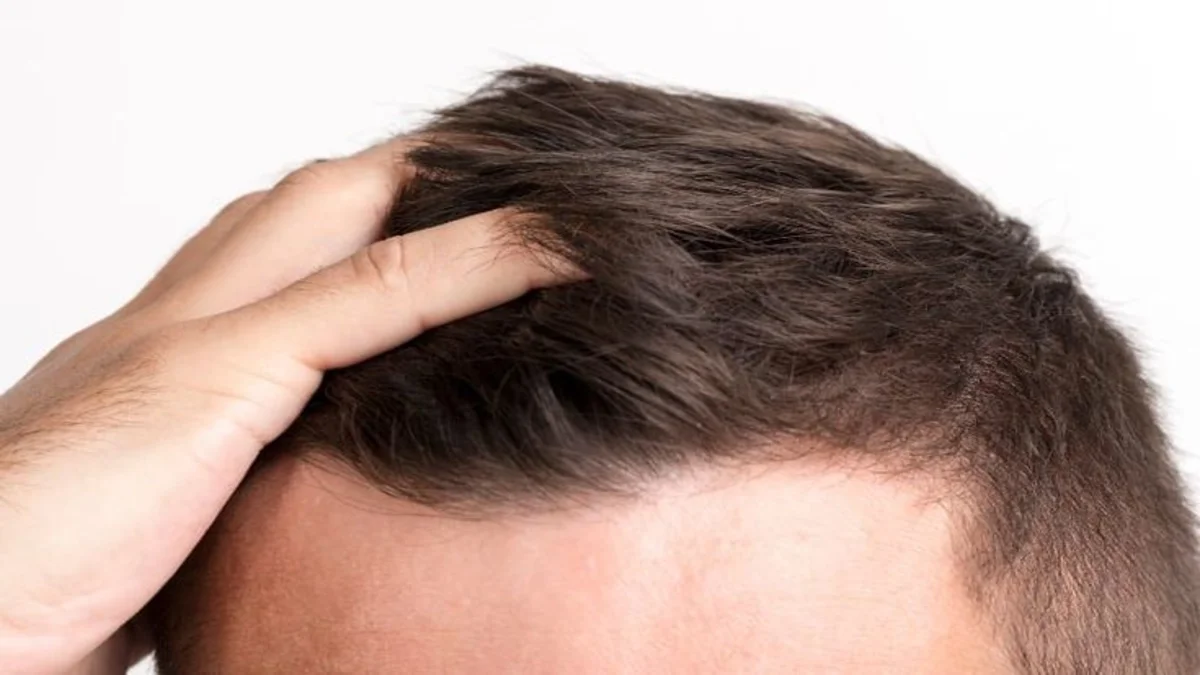Discover the best vitamins for hair growth in men. Learn about the importance of vitamin A, vitamin B7, vitamin C, vitamin D, vitamin E, zinc, omega-3 fatty acids, and iron for promoting healthy hair growth.
Find out which foods are rich in these essential vitamins and minerals and how they contribute to maintaining strong and nourished hair. Consult with a healthcare professional before making any dietary changes or starting new supplements for hair growth.
What vitamins are used to treat hair loss?
Vitamins for hair loss are dietary supplements designed to enhance the condition of your hair. Numerous vitamins and minerals are associated with healthy hair, and they are frequently marketed as a reliable means of stopping hair loss.
This article will discuss hair loss vitamins, their potential effects, and additional hair loss remedies that may be appropriate for both men and women.
causes hair loss in men
Hair loss in men can be attributed to various factors, and it’s often a combination of genetic, hormonal, and environmental factors. Here are some common causes of hair loss in men:
- Genetics (Androgenetic Alopecia): The most common cause of hair loss in men is a hereditary condition called androgenetic alopecia, also known as male-pattern baldness. This condition is influenced by genes and hormonal factors.
- Hormonal Changes: Hormonal fluctuations, particularly the increase in dihydrotestosterone (DHT) levels, can contribute to hair loss. DHT is a derivative of testosterone that can shrink hair follicles and lead to thinner hair.
- Age: Aging is a natural factor associated with hair loss. As men age, hair growth cycles may slow down, and hair follicles may become less active, resulting in gradual thinning of hair.
- Medical Conditions: Certain medical conditions and treatments can cause hair loss. These may include thyroid disorders, autoimmune diseases, and conditions like alopecia areata.
- Medications: Some medications, such as those used for cancer, arthritis, depression, gout, heart problems, and high blood pressure, may have hair loss as a side effect.
- Stress and Lifestyle Factors: High levels of stress, both physical and emotional, can contribute to hair loss. Poor diet, lack of exercise, and unhealthy lifestyle choices may also impact overall hair health.
- Poor Nutritional Habits: Inadequate nutrition, especially deficiencies in essential vitamins and minerals like iron, zinc, vitamin D, and vitamin B12, can contribute to hair loss.
- Traction Alopecia: Hairstyles that involve constant pulling or tension on the hair, such as tight ponytails, braids, or cornrows, can lead to a type of hair loss known as traction alopecia.
- Smoking: Smoking has been linked to hair loss, possibly due to reduced blood flow to the hair follicles.
Best 5 Vitamins for Hair Growth in Men
1. Vitamin A
For all bodily tissues, including hair, to grow and mature, vitamin A is necessary. It aids in sebum production, which hydrates the scalp and encourages hair growth. Kale, sweet potatoes, spinach, and carrots are among the foods high in vitamin A.1
2. Biotin, or vitamin B7
Because it is essential for the synthesis of keratin, the protein that makes up the structure of hair, biotin is frequently referred to as the “hair growth vitamin”. Furthermore, it facilitates the metabolism of fatty acids, which are necessary for strong, healthy hair. Organic eggs, nuts, seeds, and leafy greens are good providers of biotin.2
3. Vitamin C

Strong antioxidants like vitamin C help shield hair follicles from harm from free radicals. Additionally, it helps the body absorb iron, a mineral required for strong, healthy hair development. Broccoli, bell peppers, strawberries, and citrus fruits are all great sources of vitamin C.3
4. Vitamin D

For hair to grow, hair follicle cycling—which is dependent on vitamin D-is critical. Additionally, it improves the growth of new hair follicles. The greatest natural source of vitamin D is sunshine, although it can also be found in fortified dairy products, mushrooms, and fatty fish.4
5. Vitamin E
Antioxidant vitamin E promotes better blood circulation, especially blood flow to the scalp. Because of the improved circulation, the hair follicles are guaranteed a sufficient amount of nutrients for healthy growth. Rich sources of vitamin E include spinach, avocados, nuts, and seeds.5
6. Zinc
One mineral that can help control the synthesis of androgen hormones linked to hair loss is zinc. Additionally, it promotes the growth and repair of hair tissues. Lentils, sirloin, oysters, and pumpkin seeds are all great sources of zinc.6
7. Fatty Acids Omega-3

For general health, especially the health of the hair, omega-3 fatty acids are crucial. They support a healthy scalp and aid in nourishing the hair follicles. Omega-3 fatty acids can be found in abundance in walnuts, chia seeds, flaxseeds, and fatty seafood like salmon.7
8. Iron
One common reason for hair loss is iron deficiency. The synthesis of hemoglobin, which transports oxygen to the hair follicles, requires iron. Lentils, tofu, lean meats, and spinach are good sources of iron.8
food sources for vitamins for hair growth in men
| Vitamin | Food Sources for Hair Growth in Men |
|---|---|
| Vitamin A | Sweet potatoes, carrots, spinach, kale, eggs |
| Vitamin B-complex | Whole grains, lean meats, eggs, nuts, avocados |
| Vitamin C | Citrus fruits, strawberries, bell peppers, broccoli |
| Vitamin D | Fatty fish (salmon, mackerel), fortified cereals, eggs |
| Vitamin E | Almonds, sunflower seeds, spinach, avocados |
| Biotin (Vitamin B7) | Nuts, seeds, eggs, sweet potatoes, salmon |
| Zinc | Oysters, beef, lentils, chickpeas, pumpkin seeds |
| Iron | Red meat, poultry, beans, lentils, spinach |
Where can I get vitamins for hair loss?
Generally speaking, hair loss vitamins are not given away for free because the NHS does not support them as a treatment for hair loss. On the other hand, you can probably discover a variety of vitamins and supplements for hair loss if you visit any high street pharmacy or health food store.
how to avoid hair loss
- Maintain a Balanced Diet:
- Ensure you’re getting a well-rounded diet rich in vitamins and minerals, especially iron, zinc, vitamin D, and B vitamins.
- Include plenty of fruits, vegetables, lean proteins, and whole grains in your meals.
- Stay Hydrated:
- Drink an adequate amount of water to keep your body and hair hydrated.
- Avoid Tight Hairstyles:
- Be gentle with your hair. Avoid tight hairstyles that pull on the hair, as they can contribute to traction alopecia.
- Limit Heat Styling:
- Reduce the use of hot styling tools (such as blow dryers, straighteners, and curling irons) to minimize damage to the hair shaft.
- Use a Gentle Shampoo:
- Choose a mild and sulfate-free shampoo to avoid stripping your hair of its natural oils.
- Manage Stress:
- Practice stress-management techniques, such as meditation, yoga, or deep breathing exercises.
- Regular Exercise:
- Engage in regular physical activity to improve overall health, including good blood circulation to the scalp.
- Quit Smoking:
- If you smoke, consider quitting, as smoking has been linked to hair loss.
- Protect Hair from the Sun:
- Wear a hat or use hair products with UV protection when exposed to strong sunlight.
- Be Mindful of Medications:
- If you’re taking medications that list hair loss as a side effect, consult your healthcare provider about possible alternatives.
- Treat Medical Conditions:
- Address any underlying medical conditions contributing to hair loss with the guidance of a healthcare professional.
- Avoid Excessive Chemical Treatments:
- Limit the use of harsh chemical treatments, such as frequent dyeing, bleaching, and perming, as they can damage the hair shaft.
- Regular Scalp Massage:
- Gently massage your scalp to stimulate blood circulation, promoting hair growth.
- Consider Hair Supplements:
- Consult with a healthcare professional before taking any supplements, but certain vitamins and minerals can support hair health.
- Regular Check-ups:
- Visit a dermatologist or healthcare provider regularly to monitor your hair and address any concerns promptly.
When to Consult a Doctor About Hair Loss
Even though it may seem like a lot, Dr. Green notes that losing between 50 and 100 hairs a day is normal. For many people, losing hair comes with aging.
Nonetheless, there are situations where a visit to the doctor is necessary. Dr. Green advises discussing your options with a board-certified dermatologist.
“Treating hair loss early on can help minimize overall hair loss and provide the efficacy of treatment,” states Dr. Green. “A doctor will examine your hair and scalp physically and take a thorough medical and family history during a consultation for hair loss. To find out whether any anomalies are causing the hair loss, blood tests may be conducted and sent to the lab. A scalp biopsy or a sample of hair may also be obtained to investigate the root reasons for the hair loss in more detail.
FAQs
Do supplements and vitamins work to thicken hair?
should men take biotin?
What stimulates hair growth in a man?
which supplement is best for hair growth?
Does collagen help men’s hair growth?
As a result, collagen is thought to be beneficial in the treatment of male pattern hair loss. No man wants to see his hair growth slow down, even if it is primarily due to genetics. Collagen strengthens follicles and promotes healthy hair development, hence replenishing hair loss.
References
- https://health.clevelandclinic.org/the-best-vitamins-supplements-and-products-for-healthier-hair ↩︎
- https://www.medicalnewstoday.com/articles/319427 ↩︎
- https://www.cnet.com/health/nutrition/best-vitamins-for-hair-growth/ ↩︎
- https://www.ncbi.nlm.nih.gov/pmc/articles/PMC8759975/ ↩︎
- https://www.verywellhealth.com/is-vitamin-e-oil-good-for-hair-7968479 ↩︎
- https://wimpoleclinic.com/blog/zinc-and-hair-loss-understanding-the-essential-minerals-role/ ↩︎
- https://www.clinikally.com/blogs/news/your-tresses-influence-of-omega-3-fatty-acids-on-hair-health ↩︎
- https://facemedstore.com/blogs/blog/do-iron-supplements-make-hair-grow-faster ↩︎





